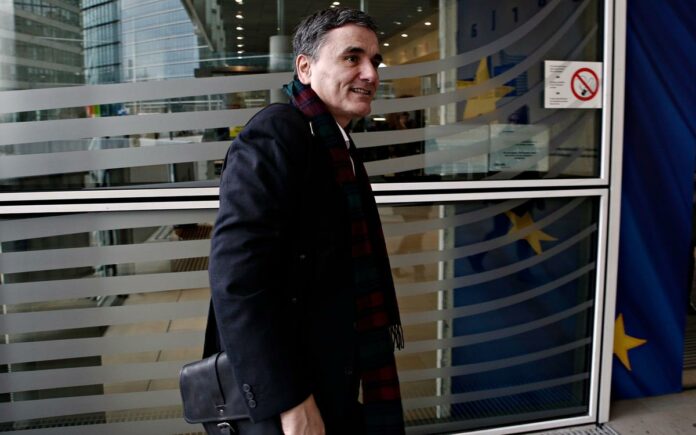By T. Tsiros
The embattled Greek government is now apparently aiming to achieve an “honorable compromise” at the forthcoming Jan. 26 Eurogroup meeting, where the now delayed process to conclude a second review of the Greek program (third bailout) will reportedly top the agenda.
The goal comes amid the specter of a collapse of the Greek program, in case the IMF decides to exit the program, a prospect that has generated repeated headlines over the past month or so.
As with the current leftist government’s past “hiccups”, Finance Minister Euclid Tsakalotos will again be called upon to convince European creditors and EZ partners of Athens’ intentions, and at the same time to unblock negotiations for a conclusion of the second review.
“Highlights” of Athens’ latest “honorable compromise” include ratification by Parliament of a specialized automatic spending cuts mechanism. The latter, according to reports, will clearly stipulate that if fiscal targets appear heading off the mark, then the relevant finance minister will immediately order “structural measures”.
“Structural measures” in this case mean lower tax-free ceilings for wage-earners, pension cuts and a harmonization of social security benefits (downwards) between different castes of pensioners.
The specialized “cutter”, as the opposition and media have dubbed the spending cuts mechanism, will ostensibly remain active even after 2019, which is the first year after the conclusion of the ongoing third bailout plan. Moreover, and just as painful for the Greek side, is a looming compromise to allow the “cutter” to remain active for as long as Greece has pledged to post primary budget surpluses hovering at the very ambitious goal of 3.5 percent of GDP.
Another main point expected to be presented by Tsakalotos is a more detailed plan for medium-term measures to ensure that the Greek debt is sustainable, a standing demand by the IMF to remain active in the Greek program. Another significant party in the Greek program, the European Central Bank (ECB), is also pressing for a positive sustainability prospect for the Greek debt, in order to allow the re-inclusion of Greek state bonds in its Quantitative Easing (QE) program.
Finally, Tsakalotos and the Greek side must conclude the now delayed second delay in order to restore the country’s financing from institutional creditors, especially ahead of July 2017, which is the most “difficult” month of the year in terms of paying off scheduled debt installments.














